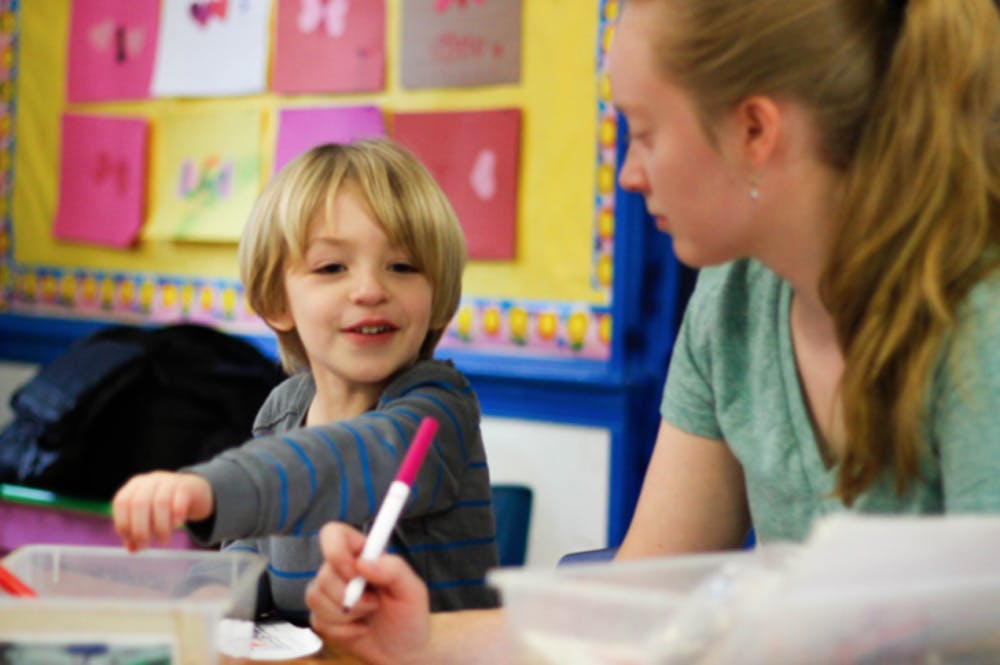By Clare McGreevy
“Those who can, do. Those who can’t, teach” is an age-old devaluing misrepresentation of the men and women who devote their lives to education.

I’ve never understood this sentiment — there is no way that people could actually be that ignorant about the impact that teachers have on our society. As Americans, we spend much of the first 18 years of our lives developing into adults under the close and watchful guidance of teachers and school officials.
It’s difficult for me to put into words exactly how significant educators are to both society as a whole and countless individual lives. I could try to list the ways in which teachers prepare students for life as adults by discussing communication skills, civil responsibility, problem solving and social competence, but the list would never end. Many functioning aspects of our personalities and behaviors that we take for granted were influenced in some way by our teachers and our time in school.
That being said, there are so many people out there who don’t understand the impact that their teachers have had on them. I have lost count of the number of times I have heard teaching equated to babysitting. The idea that teaching is easy is a great misconception — there is so much behind-the-scenes work that goes into each and every lesson students learn in school. I know elementary school teachers who return home from school in the mid-afternoon and don’t stop planning their next lesson until late into the night several times a week.
As a secondary education major myself, I am currently in the process of learning about all of the different aspects of successful pedagogy, and it is so much more complicated than many people think.
I decided that I wanted to become a teacher about three years ago during my sophomore year of high school. Most of the responses I received from my family members were along the lines of “Teaching? But you have so much potential!”
That’s when I began to realize that education really can be a thankless job. Teachers work tirelessly for the betterment of mankind. That might sound dramatic, but this is literally what they do — education not only shapes the cognitive, linguistic and technical skills of students, but also prepares the future generation to be able-minded adults.
On a much smaller scale, however, teachers can have great influential power over individual students. Think back on your own education. I’m sure there were several teachers who positively impacted your life in great ways that you never could have predicted. Personally, I am immensely grateful to many of my high school teachers who exemplified to me the importance of teaching and inspired me to choose education as my own career path. I know that I would not be where I am today without the instruction and support of the many teachers who guided me along the way.
Students share opinions around campus









